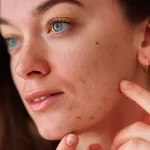Thinking about a future in skin health? Dermatology is a medical specialty that focuses on caring for the skin, hair, and nails. If you’ve ever wondered what career cluster is a dermatologist in, the answer is simple: dermatology belongs to the Health Science career cluster.
This area of healthcare focuses on helping individuals maintain their health and recover from illnesses. In this guide, you’ll learn where dermatology fits, what kind of education it takes, and how experts like Dr. Alicia Atkins at DermOnDemand bring fast, modern skin care to patients everywhere.
Key Takeaways
- Dermatology falls under the Health Science career cluster, specifically within the therapeutic services pathway.
- Becoming a dermatologist requires completing medical school, a residency, and often specialized training in fields like cosmetic or pediatric dermatology.
- Career paths include general dermatology, Mohs surgery, and digital dermatology, with a strong job outlook and high earning potential.
- Dermatologists utilize tools such as dermatoscopes, lasers, and cryosurgery equipment to treat a range of skin, hair, and nail conditions.
- Students can start preparing early by focusing on science courses in high school and exploring related roles in the Health Science cluster.
Dermatology’s Career Cluster and Field Explained
What Career Field Does Dermatology Fall Under?
Dermatology is part of the Health Science career field. It includes jobs where people work to protect and improve health. Dermatologists are healthcare professionals who diagnose and treat various skin conditions, including acne, eczema, and skin cancer. They utilize medical knowledge and technology to help people look and feel their best.
Why Dermatology Belongs in Health Science
Dermatologists assist patients by developing personalized care plans and treating various skin, hair, and nail conditions. Their work encompasses a range of care, from simple issues like treating acne to more serious concerns, such as removing skin cancer. Because they provide hands-on medical treatment, they are part of therapeutic services.
At DermOnDemand, Dr. Alicia Atkins and her team of healthcare professionals use digital tools to make expert care more accessible.
Related Careers in the Health Science Cluster
If you want a career in dermatology, there are many options within Health Science. Some related jobs include:
- Physician Assistant (Dermatology)
- Nurse Practitioner
- Pathologist
- Dermatopathologist
- Medical Laboratory Scientist
These careers support doctors and patients. Each offers steady work and long-term growth opportunities within the healthcare industry.
Skin Care Specialist Career Cluster

Dermatologist vs. Esthetician: Roles and Career Paths
Dermatologists and estheticians both care for the skin, but their roles are distinctly different. Dermatologists complete medical school and a residency program with specialized training. They can diagnose and treat skin conditions, including skin cancer, and perform procedures like surgery or laser therapy.
Estheticians work in spas or salons, focusing on beauty treatments rather than medical care.
Where Skin Care Roles Fit
Dermatologists belong to the Health Science cluster. Estheticians belong to the Human Services career cluster. They go to beauty schools, not medical school. Their work focuses on skin appearance, whereas dermatologists practice medical specialties that require advanced study and licensing.
Education and Training Pathways
High School and College Preparation
Students who aspire to become dermatologists should begin their studies early. Take classes in biology, chemistry, and anatomy. Some schools even offer health science programs. These classes help you prepare for college and medical school.
Medical School and Dermatology Residency
After college, future dermatologists attend medical school for four years. Then they join a dermatology residency program, which lasts 3–4 years. During this time, they get specialized training to diagnose and treat skin conditions using medical tools and procedures.
Some continue with additional training in cosmetic, pediatric, or laser dermatology to expand their skills.
Job Outlook for Dermatologists
Dermatology offers excellent job opportunities. The U.S. Bureau of Labor Statistics predicts that jobs for physicians, including dermatologists, will increase by about 3% from 2022 to 2032.
People are paying more attention to their skin health and early signs of skin cancer, creating a steady demand for experts. Dermatology is a secure long-term career with strong income potential in the Health Science career cluster.
Planning Your Career in Dermatology

Steps to Becoming a Dermatologist
If you want to be a dermatologist, follow these steps:
- Take high school science classes, such as biology and chemistry.
- Get a bachelor’s degree, often in a science field.
- Attend medical school to earn your MD or DO degree.
- Join a dermatology residency program for advanced hands-on learning.
- Consider a fellowship if you wish to receive specialized training in surgery or pediatrics.
Each step helps you develop the skills to diagnose and treat skin conditions, enabling you to deliver high-quality care.
Exploring Career Options Early
Students can learn about Health Science careers early by volunteering, joining science clubs, or shadowing doctors. These experiences help future healthcare professionals determine if a career in medicine is the right fit.
If you’re already considering skin health as a path, learn more about how to choose a dermatologist and what makes expert care stand out in the Health Science field.
Digital Careers: Online Dermatology and Telehealth
Technology is changing how doctors work. Platforms like DermOnDemand let dermatologists provide expert care online. Patients can get treatment for acne, rashes, or even skin cancer without leaving home.
This digital model enhances access to care, promotes long-term health, and demonstrates how healthcare professionals can assist a greater number of people through telemedicine.
Conclusion
Dermatology fits within the Health Science career cluster. It combines science, technology, and patient care to diagnose and treat skin conditions and diseases, such as skin cancer.
The journey includes medical school, a residency program, and years of specialized training. With specialties such as cosmetic and pediatric dermatology, dermatology offers a range of medical specialties that appeal to passionate students. It’s a stable, rewarding, and long-term career for those who want to make a real difference in healthcare.
Visit DermOnDemand to see how Dr. Alicia Atkins and her team of healthcare professionals are shaping the future of skin health, then take the first step toward your own long-term career in dermatology.








